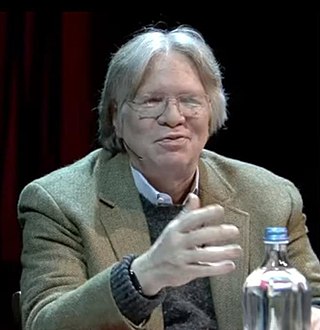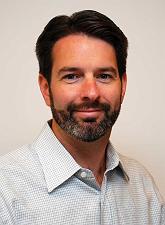A startup or start-up is a company or project undertaken by an entrepreneur to seek, develop, and validate a scalable business model. While entrepreneurship includes all new businesses including self-employment and businesses that do not intend to go public, startups are new businesses that intend to grow large beyond the solo-founder. During the beginning, startups face high uncertainty and have high rates of failure, but a minority of them do go on to become successful and influential, such as unicorns.

Venture capital (VC) is a form of private equity financing provided by firms or funds to startup, early-stage, and emerging companies, that have been deemed to have high growth potential or that have demonstrated high growth in terms of number of employees, annual revenue, scale of operations, etc. Venture capital firms or funds invest in these early-stage companies in exchange for equity, or an ownership stake. Venture capitalists take on the risk of financing start-ups in the hopes that some of the companies they support will become successful. Because startups face high uncertainty, VC investments have high rates of failure. Start-ups are usually based on an innovative technology or business model and often come from high technology industries such as information technology (IT) or biotechnology.
Sweat equity refers to work one does to build up value without a salary. This ownership interest, or increase in value, is created as a direct result of hard work by the owner. For example, homeowners who renovate or repair their house themselves are investing in sweat equity that increases the value of their home. Or it could be a non-monetary benefit that a company's stakeholders give in labour and time, rather than a monetary contribution, that benefit the company. In some cases, sweat equity may be rewarded in the form of sweat equity shares. These are shares given out by a company in exchange for labour and time rather than a monetary amount.

The Kellogg School of Management at Northwestern University is the graduate business school of Northwestern University, a private research university in Evanston, Illinois. Kellogg is considered part of the M7, an informal network of business schools recognized as having elite MBA programs, regarded as among the most prestigious in the United States.

The University of Chicago Booth School of Business is the graduate business school of the University of Chicago, a private research university in Chicago, Illinois. Founded in 1898, Chicago Booth is the second-oldest business school in the U.S. and is associated with 10 Nobel laureates in the Economic Sciences, more than any other business school in the world. The school has the third-largest endowment of any business school. Chicago Booth is considered part of the M7, an informal network of business schools recognized as having elite MBA programs, regarded as among the most prestigious in the United States.

The Samuel Curtis Johnson Graduate School of Management is the graduate business school of Cornell University, an Ivy League university located in Ithaca, New York. Founded in 1946, the school was renamed in 1984 to honor Samuel Curtis Johnson, founder of S.C. Johnson & Son, following a landmark $20 million endowment from his family which was the largest gift ever made to a business school at the time. In 2017, Herbert Fisk Johnson III of S. C. Johnson & Son contributed $150 million to the school and the newly established Cornell SC Johnson College of Business, resulting in the college's renaming.
An angel investor is an individual who provides capital to a business or businesses, including startups, usually in exchange for convertible debt or ownership equity. Angel investors often provide support to startups at a very early stage, once or in a consecutive manner, and when most investors are not prepared to back them. In a survey of 150 founders conducted by Wilbur Labs, about 70% of entrepreneurs will face potential business failure, and nearly 66% will face this potential failure within 25 months of launching their company. A small but increasing number of angel investors invest online through equity crowdfunding or organize themselves into angel groups or angel networks to share investment capital and provide advice to their portfolio companies. The number of angel investors has greatly increased since the mid-20th century.
Patricia Mary Cloherty was an American businesswoman, company director, and private equity financier. She was the chairman and CEO of Delta Private Equity Partners. Cloherty served as manager of The U.S. Russia Investment Fund and Delta Russia Fund, two venture capital funds which operated in Russia. In 2004, Cloherty was named Businessperson of the Year by the American Chamber of Commerce in Russia. In 2007, Crain's New York Business named her one of the Most Powerful Women in New York. In 2008, Cloherty received the Order of Friendship from Russian President Vladimir Putin.
Steven Neil Kaplan is the Neubauer Family Distinguished Service Professor of Entrepreneurship and Finance at the University of Chicago Booth School of Business. He started teaching at the business school in 1988, and was named Neubauer Professor in 1999. He is also the Kessenich Faculty director of the Polsky Center for Entrepreneurship, at the University.
Mark Tebbe is an adjunct professor of Entrepreneurship at the University of Chicago's Booth School of Business where he helped develop and co-teaches the Entrepreneurial Discovery class having served in this role since 2011. In addition to his appointment as adjunct professor, Mark is an Entrepreneur-in-Residence in Booth's Polsky Center for Entrepreneurship and Innovation where he mentors students and advises faculty in developing technological business techniques. He is an active investor and mentor to various companies in the startup ecosystem as part of Hyde Park Angels.

Scott Meadow is an American venture capitalist and academic who is a faculty member of the University of Chicago Booth School of Business, where he is the Kaplan McCormack Family Clinical Professor of Entrepreneurship. Since 1982 he has been a principal investor in the Venture Capital and Private Equity Industry. Since 1999 he has taught full-time at The University of Chicago Booth School of Business. Given his broad expertise within the entrepreneurial ecology, both in the field and in the academy, he has served as an Advisor to a variety of PE/VC Funds. Since 2009 he has served as a testifying expert witness in commercial disputes both in the United States and internationally as well as functioning as a professional director and mentor to entrepreneurial enterprises.

David Semel Rose is an American serial entrepreneur and angel investor. He is an investor in startup technology companies and founder of New York Angels, an early-stage technology investment group. He is Managing Partner of Rose Tech Ventures, a venture fund focused on Internet-based business, and CEO of Gust, which operates a collaboration platform for early stage angel investing.

Suren G. Dutia is an advocate for entrepreneurship and has served as a Senior Fellow of the Kauffman Foundation from March 2011 to December 2016. He has also served as a Senior Fellow with the Skandalaris Center for Entrepreneurial Studies, Washington University in St. Louis. From February 2006 to May 2010, Dutia served as the Chief Executive Officer of TiE Global based in Silicon Valley. With 61 chapters in 17 countries, TiE is one of the largest non-profit organizations involved in fostering entrepreneurship globally. Dutia founded the San Diego chapter of TiE in 2000 and was its President for three years. With the Kauffman Foundation, Dutia has been involved in varied initiatives, including building and growing entrepreneurial ecosystems, immigration policy, and mentoring a number of grantees who contribute to fostering innovation and entrepreneurship. Dutia has also authored papers on topics such as Diasporas networks, AgTech, Startup boards and Founder-CEO transition planning. In addition, Dutia also serves on the Advisory Board of the Center for Digital Transformation, University of California, Irvine.

Howard A. Tullman is an American venture capitalist, educator, writer, lecturer, and art collector. He is the former executive director of the Ed Kaplan Family Institute for Innovation and Tech Entrepreneurship at Illinois Tech in Chicago and the first University Professor appointed at IIT. He is the former CEO of 1871, the current General Managing Partner of G2T3V, LLC, and the current General Managing Partner of Chicago High Tech Investment Partners LLC, both early stage venture capital funds based in Chicago.

The Portland Incubator Experiment, often abbreviated as PIE or PIE PDX or stylized as Pie, is a business incubator based in Portland, Oregon that provides mentorship and resources to select startup companies. Co-founded by Renny Gleeson and Rick Turoczy, PIE is run by the Portland-based advertising agency Wieden+Kennedy (W+K). The program was informally launched in 2009 before converting to a formal structure in 2011. PIE participants are chosen by a selection committee, following an application process. Startups receive seed money and spend three months developing their businesses with support from W+K and participating mentors. Companies that have provided financial assistance and mentorship include The Coca-Cola Company, Google, Intel, Nike, Inc. and Target Corporation.
The 'Engineering, Science & Technology Entrepreneurship Excellence Masters Program' also known as the 'ESTEEM Program' is an entrepreneurship master's program and collaborative effort between the Mendoza College of Business, College of Science, and College of Engineering at the University of Notre Dame. The 1-year program includes business courses covering finance, marketing, strategy, leadership, project management, quality, operations research, and ethics as well as science and/or engineering electives and a capstone thesis project.

Josh Lerner is an American economist known for his research in venture capital, private equity, and innovation and entrepreneurship. He is the Jacob H. Schiff Professor of Investment Banking at the Harvard Business School. According to Web of Science on June 16, 2023, he has 165 indexed publications and a Hirsch index of 66, and over 74,000 citations on Google Scholar, which puts him in top 5% of economics researchers in the USA. His research encompasses investments, startups, venture capital and private equity.
Gregg Latterman is an American entrepreneur, academic, and angel investor. The founder of Aware Records, he teaches "Positive Entrepreneurship: Profits and Meaning" at Northwestern University, and lectures on innovation and entrepreneurship at the Kellogg School of Management.
The Garage at Northwestern University is an interdisciplinary innovation and entrepreneurship space and community for students at Northwestern University. The Garage provides students with resources and programming related to entrepreneurship and mentorship. The Garage houses approximately 90 student-founded startups per academic quarter. Its programs and resources are available to all Northwestern students.










